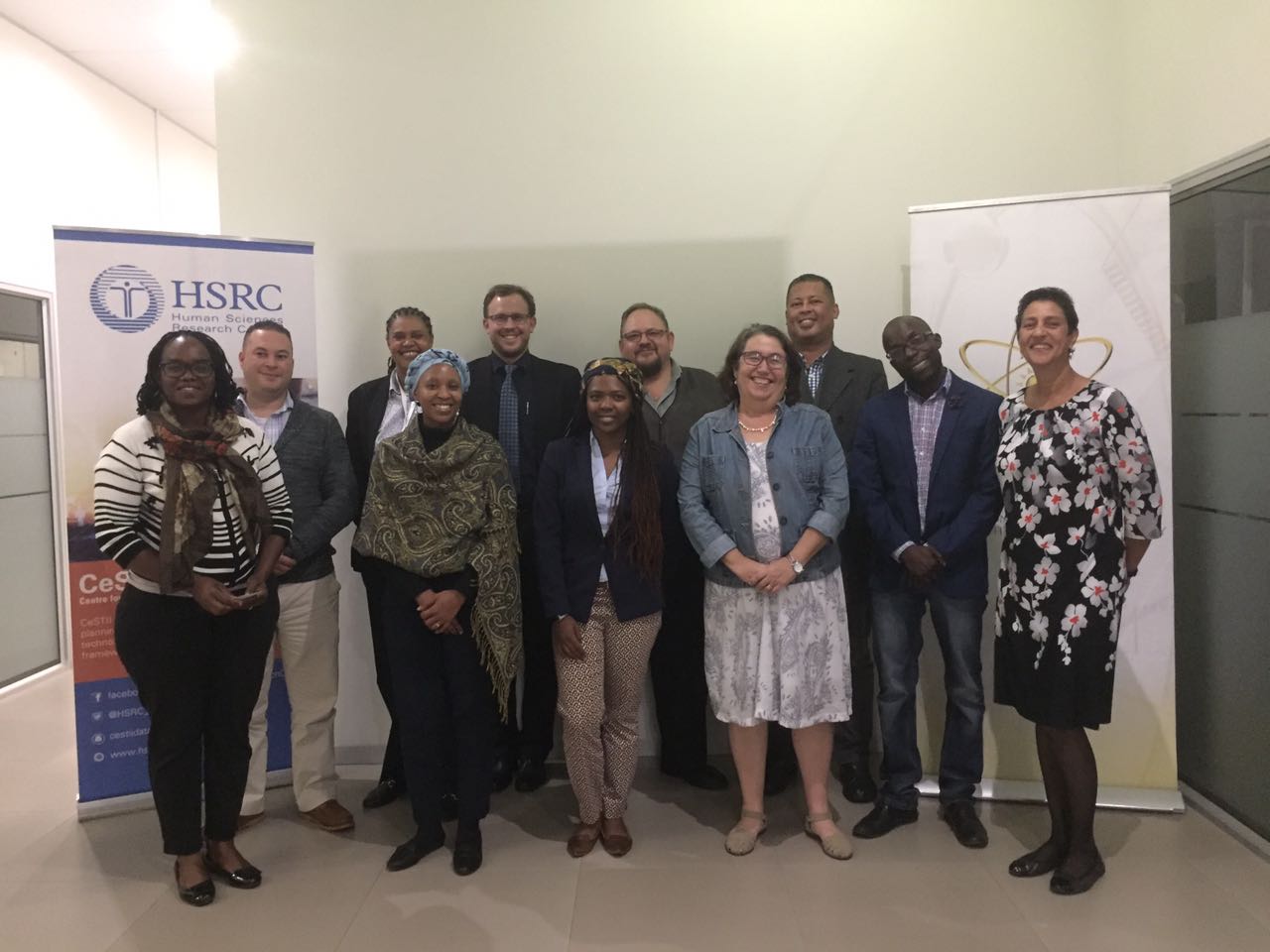Namibia, Monday 22 May 2017 – The Human Sciences Research Council’s Centre for Science, Technology and Innovation Indicators (CeSTII) and Namibia’s National Commission on Research Science and Technology today concluded an agreement to collaborate on the production of national scientific and innovation statistics.
The agreement was concluded on the margins of the 2017 annual conference of the Southern African Research and Innovation Management Association (SARIMA) in Windhoek. This MoU will advance the ongoing collaboration between the two agencies in the areas of learning exchanges, joint research projects and joint publications.

Science, technology and innovation indicators enable a country to measure, monitor and evaluate its scientific and innovative capabilities.
Speaking from Namibia, CeSTII Executive Director Dr Glenda Kruss said, “These capabilities matter because they can contribute to inform contextualized solutions to persistent development challenges, amongst others, water and food security, healthcare and livelihoods.”
“When looking at international case studies and analyses of best practice in economic development, we see that innovation and technology diffusion can play a significant role. We are therefore keen to understand what Namibia is doing well in this area and share lessons learnt, so that our countries can benefit from our collective experiences, and contribute to build expertise across the Southern African region,” concluded Dr Kruss.
Meanwhile, NCRST Head Dr Eino Mvula welcomed the finalisation of this MoU saying that “collaborations such as these are crucial to sharing the outcomes of work done in areas of mutual interest which could, among others, assist in identifying best practice and lessons learnt. Partnerships can also yield significant outcomes and contribute to how we leapfrog the learning and experience curves in the area of technology transfers, innovation and R&D,” concluded Dr Mvula.
While in Namibia, the HSRC’s CeSTII shared new plans to pilot surveys of innovation in the informal economy, and disseminated findings from its most recent national surveys, including its R&D Survey 2014/15 and the first national survey on intellectual property and technology transfer.
Follow the conversation on #SAResearchMatters
Notes to the Editor
The R&D Survey 2014/15 and National Survey on Intellectual Property and Technology Transfer can be accessed here: http://www.hsrc.ac.za/en/departments/CeSTii/reports-cestii
Access the proceedings of the release of the R&D Survey 2014/15 here: https://t.co/vgBT7zhQJR
About the Human Sciences Research Council (HSRC)
The HSRC was established in 1968 as South Africa’s statutory research agency and has grown to become the largest dedicated research institute in the social sciences and humanities on the African continent, doing cutting-edge public research in areas that are crucial to development.
Our mandate is to inform the effective formulation and monitoring of government policy; to evaluate policy implementation; to stimulate public debate through the effective dissemination of research-based data and fact-based research results; to foster research collaboration; and to help build research capacity and infrastructure for the human sciences.
The Council conducts large-scale, policy-relevant, social-scientific research for public sector users, non-governmental organisations and international development agencies. Research activities and structures are closely aligned with South Africa’s national development priorities.
Join the conversation at:
For more information or to set up interviews, please contact:
Manusha Pillai
Mobile: 082 389 3587
email: MPillai@hsrc.ac.za
Adziliwi Nematandani
Mobile: 082 765 9191
email: anematandani@hsrc.ac.za

